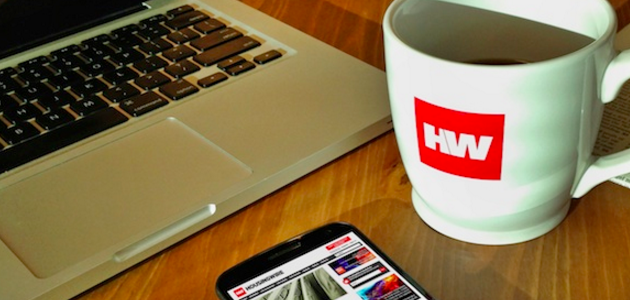Monday Morning Cup of Coffee takes a look at news coming across HousingWire’s weekend desk, with more coverage to come on bigger issues.
One housing expert says housing sales are increasing, and the CEO of KB Home agrees with her, kind of.
Housing expert Ivy Zelman had some good news, here on CNBC, after existing home sales rose to 14.7% in December, a record monthly increase.
According to the piece:
Ivy Zelman thinks today’s report is indicative of the sector as a whole. While Wall Street experiences record volatility swings, the housing market is in good shape. Zelman notes that inventories are at 30-year lows, while affordability is at record highs. She argues that people — especially millennials — are thinking about buying homes again, which will continue to drive up demand and sales. So while the sector has been recovering since 2012, there is still a long way to go.
KB Home CEO Jeffrey Mezger tells ABC that housing markets are not fully “normalized,” but there’s nowhere to go but up.
“We’re bullish in that the housing markets have a long way to go to get back to historical levels. As much as they’ve improved, there’s still a lot of room to run. Between our backlog position and our communities that are open and the way we’re performing, we’re projecting continued improvement in revenue, margins, profit — all the metrics,” he said.
Mezger added that affordability is “compelling” right now.
One market that undoubtedly agrees is Orange County. After years of destabilized housing shifts, one local publication said the market is back to normal.
The Orange County Register article, written by Jeff Collins, cites several exact examples and uses some great data to back up the claims:
The full-year median – or price at the midpoint of all 2015 sales – was $610,000, figures from Irvine housing data firm CoreLogic show. With sales totaling 36,588 homes, 2015 was the second-busiest year since the recession.
On the other hand, last year’s 4.8% price appreciation rate was the lowest since 2011.
And despite last year’s 7.4% gain, 2015 transactions lagged behind 2013’s tally and were 13% below average, CoreLogic figures show.
So with all the normalcy happening in housing, does it make sense on the financing side to buy?
Yes, according to this piece in the Sentinel Source.
The piece’s author, Gail Marksjarvis, maintains that rates will remain low for mortgages for the remainder of the year, despite the Federal Reserve recently raising rates.
Why? Global volatility is keeping investors interested in our bond markets, and that keeps rates competitive:
When investors worried about a European debt crisis, a Greek debt crisis or China’s stock market and economy, U.S. stocks dropped as people yanked their money out of the stock market and tucked it into U.S. Treasury bonds for safekeeping, he said. As the money flowed into bonds, the yields on them dropped, and mortgage rates did too.
One product expected to see greater action, according to this piece in CNN Money, is reverse mortgages.
New rules are providing extra protection and the stigma attached to the product is lessening, according to author Donna Rosato, writing for Time:
The stigma has lessened lately. Thanks in part to new rules for these government-backed loans, experts such as economics Nobelist Robert Merton have endorsed them, especially as a source of emergency funds. “There’s a totally different way of thinking about these now,” says John Salter, a professor of personal financial planning at Texas Tech University.
One unlikely suspect to insure all these new mortgages is coming to market.
According to the piece by Adam Jeffery in CNBC, the American International Group is going down that path.
Yes, that AIG:
American International Group has decided to pursue a spin-off of its mortgage insurance business, according to people familiar with the matter, in a move that would come as the U.S. insurer fends off activist Carl Icahn.
The spin-off of that business however, which accounted for 7.4% of AIG’s pre-tax operating income in the first nine months of 2015, is unlikely on its own to appease Icahn, who is calling for AIG to break up into three separate businesses.
The Federal Deposit Insurance Corp. closed no banks last Friday.





